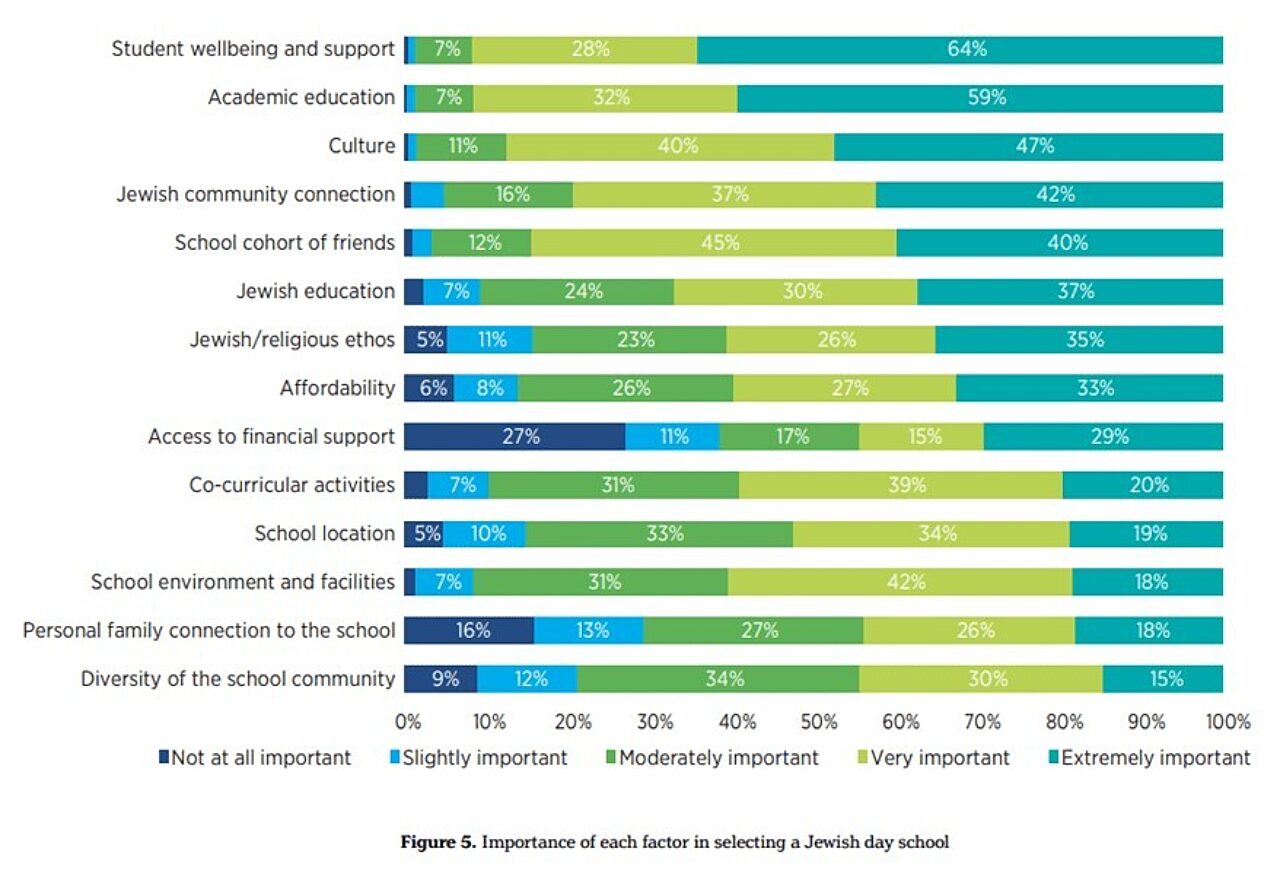The JCA is a communal fundraising body for the Jewish community in NSW and the ACT, with added responsibility for strategic planning on issues including sustainability of Jewish schools.
Schools were facing enrolment headwinds
The JCA identified that Jewish schools faced existential challenges in the future from changing demographics and social trends, increasing concerns about private school affordability, and community feedback pointing to unmet needs and expectations.
The JCA sought an assessment of the status of the schools to provide a robust evidence base and guidance on future directions. We were invited to provide an independent assessment to inform planning for the shape of education across the community and at individual schools.
We undertook extensive community engagement
We used extensive quantitative and qualitative analysis to gain a deep understanding of the schools environment and to highlight options. Our analysis included:
- Modelling of future enrolments at the schools using Australian Census and JCA socio-demographic data. This demonstrated that, while the schools are currently close to capacity, demographic trends would have a significant impact on future enrolments and financial sustainability.
- A community-wide survey. The survey of families as well as of government, Jewish schools and other independent schools attracted significant interest, with more than 900 families responding, representing more than 2,080 past, present and future students. The survey provided rich insights on the factors that go into families’ decision about schooling and their levels of satisfaction with the schools.
- Focus groups with more than 80 parents. These focus groups provided deep insights on the extent to which schools were meeting the needs of families attending the schools and families’ visions for the future.
- Assessment of the affordability challenges. This assessment identified that, without affordability constraints, the schools would gain more than 1,200 additional students per year (up 15 per cent on current enrolments).
The community survey gained an insight into what factors families valued in selecting a Jewish school:


The survey also captured comments from parents on what they wanted from schools. Parents said they wanted schools to “understand that some kids need enrichment, and others support”, “invest in growing each child”, “learn how to get the best out of each child”, “show warmth, commitment and enthusiasm”, “employ creative approaches to education” and “create Jewish leaders for tomorrow”.
Based on this extensive analysis, we developed potential future visions, ranging from simple improvements to transformative reforms, through engaging with families and communal leaders. We also prepared clear recommendations for the community as a whole and for the individual schools.
Report is setting up schools for success
The JCA welcomed our objective and evidence-based report, which set it up for successful change. Our report supported a newly developed education committee, led by David Gonski AC, to explore options to revitalise the schools and in turn support the future of education for the broader community.
We facilitated a brainstorming workshop for the committee to identify several big ideas for the future of education for the community. The schools and JCA are working together on the big ideas generated and are reviewing each one for synergistic benefits across the Jewish education landscape in NSW.
What you can learn from the JCA
Communal organisations must look beyond their short-term successes to see long-term challenges on the horizon. In this case, socio-demographic data indicated future existential challenges.
Communal organisations faced with declining target markets must think creatively to identify a clear value proposition informed by customer feedback and work collaboratively to deliver a joint approach to best support their communities.
Educational organisations can improve student attraction and retention by redirecting funds and effort to reflect the wishes of families. Often, this means shifting funds and effort away from new infrastructure (identified as less important) to more academic education and student wellbeing (identified as critical).



